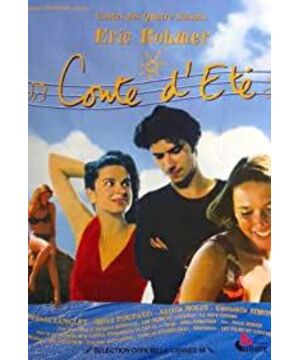A friend asked me what movie I was watching recently, and I said I was watching Rohmer recently.
She gave a long "oh", then looked at me and said, "Rohmer's movie really fits your temperament." I turned my head and asked her, "What kind of temperament?" She shook her head and didn't answer. , then lowered his head and walked forward for a short distance by himself, and suddenly turned his head and said to me, "That's the kind, it looks very floating, and it's a little hypocritical."
Bourgeois floating and hypocritical, Rohmer's works are indeed easy to be labeled as such, long dialogues, long panning shots, and almost no ups and downs, extremely soothing romantic stories, these elements constitute a film. The structural narrative is not quite like a movie, but it can touch the audience's deep emotions and has a very unique texture. Those who escape from the stereotyped and vivid characters have made many screen classics. Just like the three female characters in "Summer's Tale", they are not passively presented object images, but subjects with great personal choice. The director gave them sufficient time and space to elaborate and explain themselves. Compared with the male protagonists who sometimes fall into sorrow and hesitation, they are much more decisive, sober, and more "willful".
No matter from the film art level or the entertainment level, the films devoted to excavating human subtle emotions (especially love) and exploring the typical spiritual structure of human society are always criticized for lack of creativity and cinematic sense. Film was originally used as a technique for capturing motion, showing people the process of matter moving in space and time. To this day, however, most movies are still just repeating this primitive concept: telling a story, amplifying or fictitious events, with bows and arrows just for the sensory satisfaction of the audience. It is true that the film captures movement, which is a projection of movement in space and time, but the film should be a projection of spiritual movement. Those powerful emotions are not completely attached to the arousal of a certain movement, but to every movement. A manifestation that touches both the physical and the spiritual life of a person. Rohmer's films have such vitality. After watching the film, it is like taking a long and powerful deep breath.
References: The Avant-Garde Film: A Reader of Theory and Criticism, Anthology Film Archive 1978, P49-P50
View more about A Summer's Tale reviews









